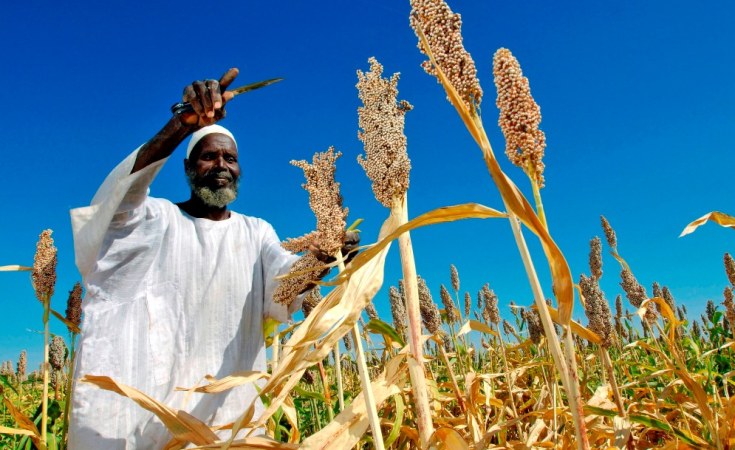Windhoek — John Gushit from the University of Jos' department of science in Nigeria nearly lost his eye when herbicide in a syringe he'd been working with splashed into it. "Only speed saved my sight, " he said during the eLearning Conference in Windhoek, Namibia. It set him on a long road, which involved long hours of travel and securing a bank loan.
The bank loan was to get his mobile technology project off the ground - he wanted to show "peasant farmers" how to properly use pesticides.
"I had noticed gross misuse of herbicides by peasant farmers. chemicals are not something you play with, and any misuse will one day leave you to tell the story in a bitter way. I didn't want these farmers to learn the hard way."
He decided to use elearning methods practiced at the university for his programme but found that it was not enough for the Plateau State farmers because some of them could only communicate in their local dialect.
"I came across an article in Spore magazine which showed the i-Cow program created by a Kenyan and adapted it to help show farmers how to correctly use pesticides and herbicides," Gushit said.
The dangers that the programme needed to address seem basic: farmers were not using protective gear while applying the chemicals to crops; they weren't washing out the containers and discarding it properly and the Fulani herdsmen were bringing their cows to graze on the areas where herbicides were applied only hours earlier.
"Some of the cows behaved strangely and even died later. If you know enough about Plateau State and the conflict there, you will know that fighting between groups broke out because of this.
"Poverty also plays a role in this, of course, because farmers want to cover a large area of land in a short time so they can earn more. They carried the containers on their backs for the whole stretch and the chemicals would splash onto their backs. They showed me the blisters on their backs as a result of this."
Gushit wanted to make sure that the farmers had access to the pesticide and herbicide information all the time, and that someone who could help them with advice was available at all times. "Simple cellphones were the answer. Peasant farmers are not schooled and we had to use their dialect to communicate, even though some young men were able to guide them when they received texts."
Gushit and his colleagues had to make sure that the programme was ready to use on any cellphone and their availability could save the life of a farmer. "Remember it takes five to six hours to reach a health centre if someone is accidentally exposed to these chemicals. We needed to be on the phone so we could help them," Gushit said.
At the end of the first phase of the project, only 17% of the more than 150 users said the system was "not needed", and 44% wanted an improved programme to use every day - and Gushit believes this technology has given farmers hope, while lowering their exposure to harmful chemicals. His plans to scale up the programme include securing a simpler mobile number for farmers to dial and a more user-friendly website to store all the data they collect.


